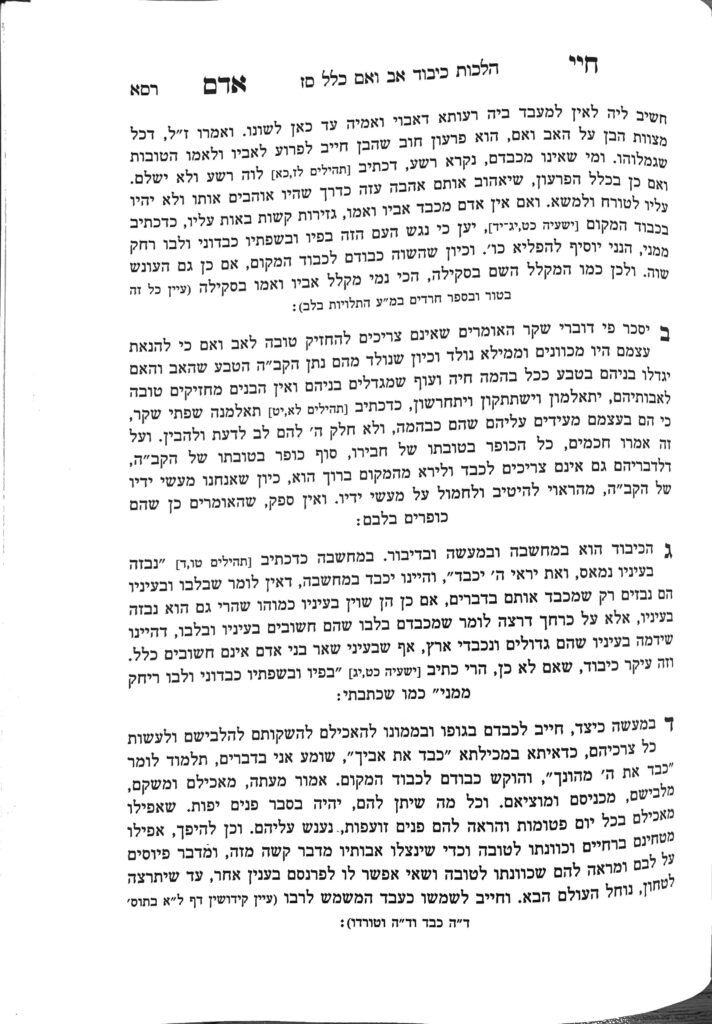We are beginning siman 4. The Chayei Adam will begin delineating some of the halachos of kibud av v’eim. One must keep in mind the internal attitudes and thoughts one must have while performing these actions, as we have discussed until now.
The Chayei Adam writes that a person has a chiyuv to honor their parents with their money and possessions. (We will clarify the financial obligations of the child vis a vis their parents in later simanim.) One must feed them, give them to drink, help them get dressed, help them go in and out, and help them with any other needs which contribute to their kavod. The Mechilta learns that kibud is not just speaking nicely to one’s parents, but doing actions which give them kavod as well.
The Chayei Adam writes that a person should do all these actions of kavod with a happy countenance. A person who gives their parents service with a sour face diminishes the kavod they are giving their parents. Chazal say that even if a child feeds their parents fattened birds (i.e., the most luxurious foods), if they do it with a sour face, they will be punished. On the other hand, if a child is forced to put their parents into hard labor for the protection of their parents, if they do it respectfully, they will be rewarded.
The Chayei Adam is referring to a Yerushalmi which discusses a situation in which a father was to be taken for service of the king, which was potentially a situation of life or death. This person’s son went in his place, but it meant that the father had to take over the son’s responsibilities at home of grinding the millstone with his own strength in order to provide for the family. The Yerushalmi concludes that although it is horrible to make the father perform hard labor, since the son did it to save his father and to demonstrate his love for his father, the son will be rewarded.
Summary
- One must honor their parents with their money and possessions.
- Kavod includes, but is not limited to, feeding them, giving them to drink, helping them get dressed, and helping them go in and out.
- A person should do these actions with a happy countenance; doing them with a sour face diminishes the kavod they are attempting to give their parents.


